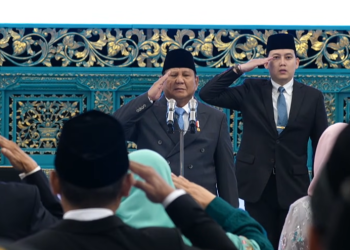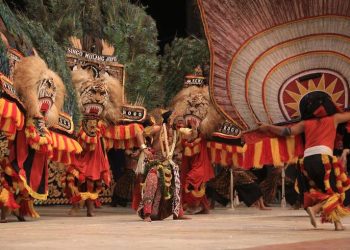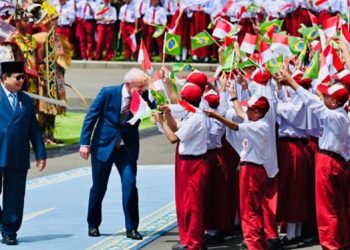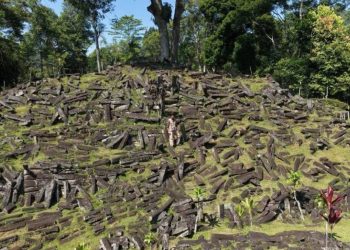Jakarta, Indonesia Sentinel — Recognized as a UNESCO World Heritage site since June 2012, Bali Subak irrigation system has long been integral to the island’s agricultural landscape and cultural identity. However, the traditional water management system is now under threat due to the rapid expansion of tourism and urban development in Bali.
Bali’s local communities have earned international admiration for their dedication to preserving water resources, ensuring a harmonious balance between nature and human life. This commitment is embodied in the Subak system, a centuries-old irrigation practice deeply rooted in Balinese culture. The system is designed to distribute water equitably among farmers, reflecting the island’s philosophy that views water as a symbol of sustainability, purity, and balance.
Despite its cultural significance, Subak is facing increasing pressure from modernization, which threatens to erode its values and sustainability.
Deputy Minister of Culture Giring Ganesha, emphasized that preserving Subak is crucial as Bali navigates the challenges of rapid development. He highlighted the need for innovation in agriculture and a new generation of farmers to maintain the system’s viability.
“Subak is currently grappling with several major challenges, including declining water sources, shrinking agricultural land, and the looming threat of natural disasters,” Ganesha stated.
Government’s Cultural Initiatives: Subak Spirit Festival
In response to these challenges, the Ministry of Culture launched the Subak Spirit Festival on Saturday, November 9. The festival aims to address the threats facing Subak through a holistic approach involving seven activation spaces: culture, ecology, knowledge, gastronomy, sports, performances, and public outreach.
“This festival serves as a call to action for the younger generation to reconnect with their cultural heritage, understand it deeply, and preserve it with pride,” Ganesha emphasized during the event.
He also underscored the importance of strengthening the synergy between Subak as a form of sustainable agriculture and tourism, which is a key driver of Bali’s economy.
Bali’s Subak Irrigation System, Indonesian Agricultural Heritage Recognized by UNESCO
Ganesha believes that Subak is more than just an agricultural irrigation system; it represents a cultural legacy that imparts philosophies of harmony, community, and balance. The system is guided by the Tri Hita Karana philosophy, which promotes a balanced relationship between humans, nature, and the divine.
Developing a Roadmap for Subak Preservation
Looking ahead, the Ministry of Culture host a “Subak Cultural Forum” on Monday, November 11, 2024, at Udayana University in Bali. The forum aims to develop a comprehensive roadmap for preserving the Subak system, ensuring its survival as a UNESCO World Heritage site.
The proposed roadmap will serve as a collaborative framework involving multiple ministries and local governments, including the provincial government of Bali and five key districts where Subak landscapes are located: Tabanan, Gianyar, Bangli, Badung, and Buleleng.
The preservation roadmap also emphasizes to improve the welfare of farmers who sustain the Subak system, supported by various government initiatives. The welfare of farmers is a critical component of Subak’s preservation as a World Heritage site.
This roadmap will also serve as a foundation for engaging other stakeholders, including academics, artists, and community leaders
As the Subak system facing threat from tourism and urban development, these initiatives aims to protect and preserve the world heritage of Bali. Indonesia hopes to secure the future of Subak, balancing the island’s rich cultural heritage with the demands of a modern, tourism-driven economy.
(Raidi/Agung)























